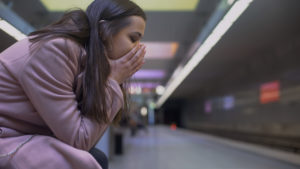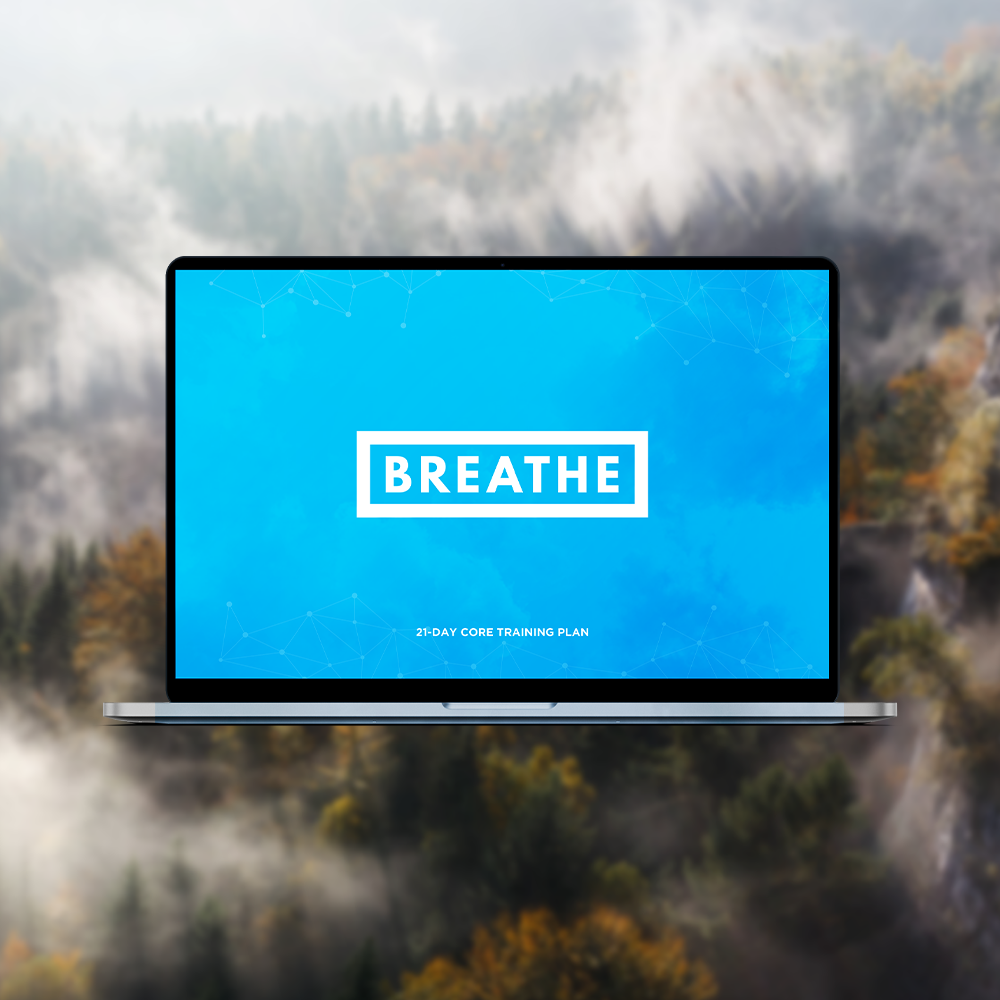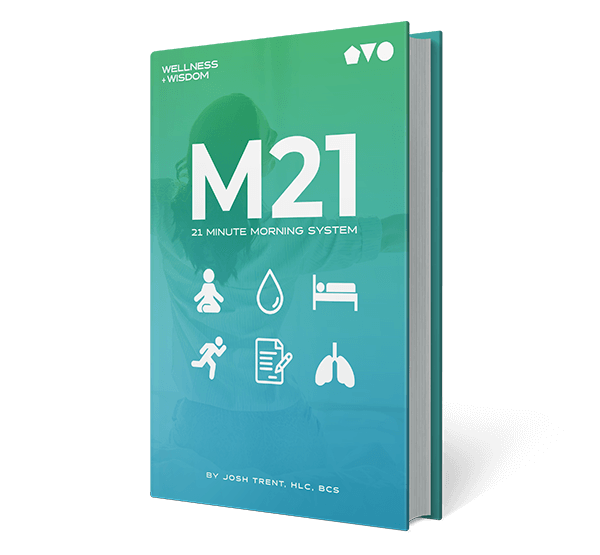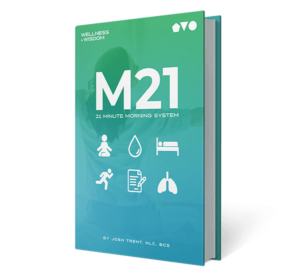Anxiety disorders are a cluster of mental health disorders marked by intense and constant worry and fear about everyday situations. In 2017, the World Mental Health Survey found that, around the globe, 18.2% of the total population have anxiety disorders. This statistic is a strong indicator that it's prevalent, and many are affected by stressful life events, leading to these disorders.

Moreover, the arrival of the pandemic may have also worsened the situation. It caused tremendous stress to individuals who were experiencing job loss, being bombarded with COVID-19 news, losing loved ones, and living in fear of the virus. In such a situation, it’s highly likely that people may develop anxiety or that people with anxiety will have their issues aggravated.
It's crucial to have knowledge around the topic of anxiety. The people who are near those with anxiety will have some background of their situation, which in turn can lead to more care and understanding for them.
In addition, if you have anxiety, there is a big chance that you might have depression as well. Seeking quality diagnosis and treatment from available psychological services is crucial if you want to be able to manage it or cope better. One such place that offers these services is Alvarado Parkway Institute; visit https://apibhs.com/inpatient-depression-treatment for more details.
If you would like to have basic knowledge about anxiety, here are the four types of anxiety and some tips on how to overcome them with anxiety treatment.
Table of Contents
Types of Anxieties
1. Panic Disorder
This disorder is characterized by quick and acute feelings of anxiety that are combined with notable symptoms.
These symptoms include the following:
- Sweating
- Stomach pain or chest pain
- Increased heart rate
- Difficulty breathing
- Tingling sensations
- Light-headedness or dizziness
- Digestive problems
- Depersonalization (when one feels like they’re outside themself)
- Fear of dying
- Derealization (feeling that one's environment is not accurate)
A person with panic disorder may experience all or some of the symptoms above. They might describe it as real, and that is the reason some often seek medical attention. This disorder is also characterized by panic attacks and the fear of having such panic attacks. Altogether, it should be appropriately addressed to prevent individuals from developing negative coping strategies like food addiction.
2. Post-Traumatic Stress Disorder
Post-traumatic stress disorder (PTSD) was formerly called ‘battle fatigue’ or ‘shell shock’ because of its common association with veterans' experiences. But what is PTSD? It's an anxiety disorder that occurs after one undergoes traumatic experiences. These experiences can be either emotional or physical, such as major accidents, abuse, witnessing someone’s death, disasters, or military combat. The people who have this disorder may have difficulty managing and healing from such incidents.
Some of the symptoms associated with it are as follows:
- Reaction to triggers
- Issues with emotions
- Anxiety about the traumatic event happening again
- Reliving traumas
- Not being able to sleep
- Withdrawal
- Feelings of isolation
- Avoidance of incidents that could remind them of the trauma
- Disaster thinking (the thought that something terrible could happen)
- Tendency to get upset and startled easily
These symptoms might happen after one smells, sees, or hears something that causes them to remember the trauma. In general, PTSD can happen to anyone regardless of age, and it's an issue that requires professional help.
3. Generalized Anxiety Disorder
Do you feel anxious in different circumstances, even mundane ones? For example, approaching a coworker, visiting the doctor, or doing your job? Then you may have generalized anxiety disorder (GAD). This is a constant physical and mental nervousness that is sometimes without cause or seemingly without end. Generalized anxiety disorder is the most common of all types of anxiety.
A person with this disorder may feel a fear that doesn't match their surroundings. For example, it's normal to feel anxious attending a party for the first time, but a person with GAD might overthink things and worry that the people around him may think wrongly of him.
Some concerns linked with GAD are as follows:
- Fatigue or low energy levels
- Rumination on anxiety-provoking thoughts
- Tense muscles
- Problem with concentration
- Edginess or feeling of having no control
A generalized anxiety disorder may result from a variety of things, such as a physical condition, stress, substance abuse, genetics, or environmental factors, such as bullying.
4. Social Anxiety Disorder
Social anxiety disorder is a general fear of social interactions or performances. Socially anxious people may be worried that others will judge or ignore what they say or do. And so, one common sign of social anxiety is the desire to remain at home so as not to be seen by others.
Social anxiety may affect work and school activities, and may disrupt many things in a person's life. It could hamper a person from having dates, meeting strangers, eating in public places, going to the mall, and answering the phone. Because of these effects, this condition may lead to social isolation.
Physical symptoms also manifest in social anxiety, like the other types. These symptoms include the following:
- Shaky voice
- Blushing
- Sweating
- Difficulty speaking
- Light-headedness
- Rapid heart rate
These don’t often occur simultaneously, but some may experience all of these symptoms in extreme cases.
Ways To Overcome Anxiety
1. Practice Proper Breathing

Poor breathing habits are often linked with anxiety, so proper breathing may help alleviate some of the symptoms. One way to do this is by slowing down and taking deep breaths. That’s the common method most people use. However, if it doesn’t work for you or if you’d like a method that’s more comfortable for you, there are other more technical ways of breathing, such as the 4-7-8 breathing technique and square breathing.
2. Exercise
With regard to anxiety, there are many benefits to exercising regularly. Exercise can help divert the brain from focusing on anxious thoughts alone. It can also build the resilience that’s needed in times that you may be struggling with difficult emotions. Furthermore, it can help reduce the muscle tension that contributes to the feeling of anxiety.
There are many ways you can exercise to cope with anxiety. You can jog, go to the gym for a workout session, ride a bicycle, or even attend dance classes.
3. Practice Managing Anxious Thoughts
Anxiety may also come from negative thought patterns, so controlling these negative thoughts and getting rid of anxiety triggers may help. You can begin by being aware of your thoughts and stopping yourself when you come up with negative self-talk. The next step is to consider if your thoughts are helpful or not. You can check if there is an exaggeration about the thought or if there’s evidence that the thought may be true. The last step is to replace negative thoughts with positive ones.
4. Take Medication
There are a lot of different medications that a psychiatrist might prescribe for anxiety. Some of these are:
- Tricyclic antidepressants
- Benzodiazepines
- Monoamine oxidase inhibitors
- Selective serotonin reuptake inhibitors
Medications are a great tool to help calm a person down, and it can alter brain chemicals that may be causing anxiety.
5. Undergo Therapy
Various kinds of therapy exist to address different people's issues. Psychotherapy is one of them, and some of subsets of it that can help treat anxiety are cognitive behavioral therapy, acceptance and commitment therapy, psychodynamic therapy, experiential therapy, dialectical therapy, and exposure therapy.
Many people have also found ketamine psychotherapy to be beneficial in addition to talk therapy.
Conclusion
Anxiety affects a vast number of people. It's a serious societal topic that shouldn’t go ignored. Since there’s a probability that more people might develop this disorder, it's crucial to raise awareness about the experiences of people with anxiety. And one can start by knowing the different types of anxiety and several solutions to overcome it.
Another step in raising mental health concerns is to establish proper support in the social environment of people with anxiety, especially friends and loved ones. As many people with anxiety may still be hesitant to seek help due to the fear of embarrassment and the stigma surrounding it, it's crucial to have understanding and offer assistance for them, as it will help them recover.









